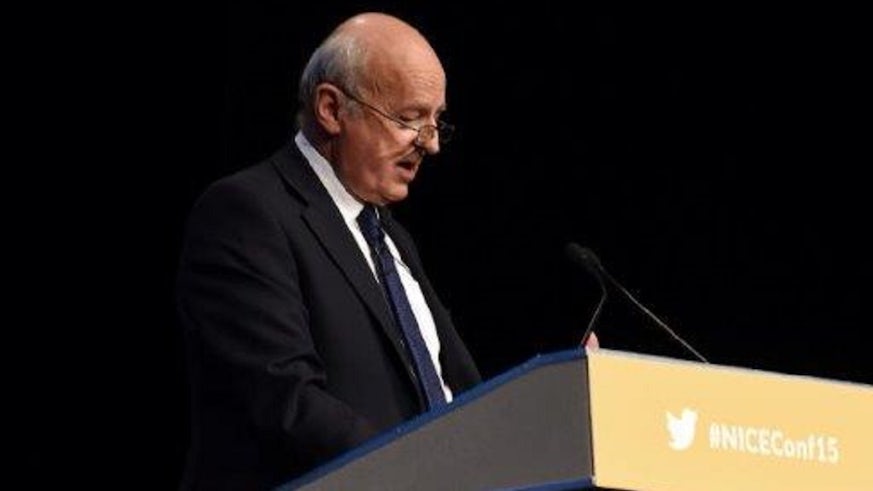Prof Shepherd talks at NICE conference 2015
15 December 2015

Professor Jonathan Shepherd received an award at the 2015 NICE Annual Conference for his work in tackling violence and alcohol misuse.
The National Institute for Health and Care Excellence (NICE) guides on what works and what should be funded in UK health and care services. In a national competition, NICE identifies people and organisations which have contributed in special ways to guidance and its implementation.
In a conference plenary session, Professor Shepherd summarised his take on what constitutes high quality care in the following speech.
To me, a professor of oral and maxillofacial surgery in a Russell Group university hospital, high quality care means prevention, precisely targeted surgery and no pointless, burdensome outpatient appointments.
What drives me is seeing the outcomes of innovations in prevention, John Snow’s example, and, after 40 years in the NHS, successes of my own team.
Information sharing by A&Es to tackle violence, substituting annealed pub glasses with toughened and then polycarbonate glassware, and the Have a Word programme to motivate health and other professionals to give patients and others effective brief advice about alcohol – the products of my teams’ controlled trials - have all achieved traction and national adoption. Could anything be more motivating to find and refine the next prevention breakthrough?
Seeing wisdom teeth operations drop out of lists of most frequently performed surgical procedures, helped along by the historic first NICE guideline in 2000, is also hugely motivating, especially after 40 published papers, heated exchanges with consultant colleagues in the letters columns of the BMJ, and the president of the British Association of Maxillofacial Surgeons writing to tell me that I’d “betrayed the specialty”.
So, prevention, laser-like targeting of surgery, and less burdensome aftercare are my priorities. But the greatest of these, is prevention. This isn’t just a job for public health, though I wish public health colleagues, inspired by John Snow’s example, would rediscover their passion and resolve to identify and disable the problematic watering holes of 21st Century Britain – licensed premises. Prevention is a task for all of us.